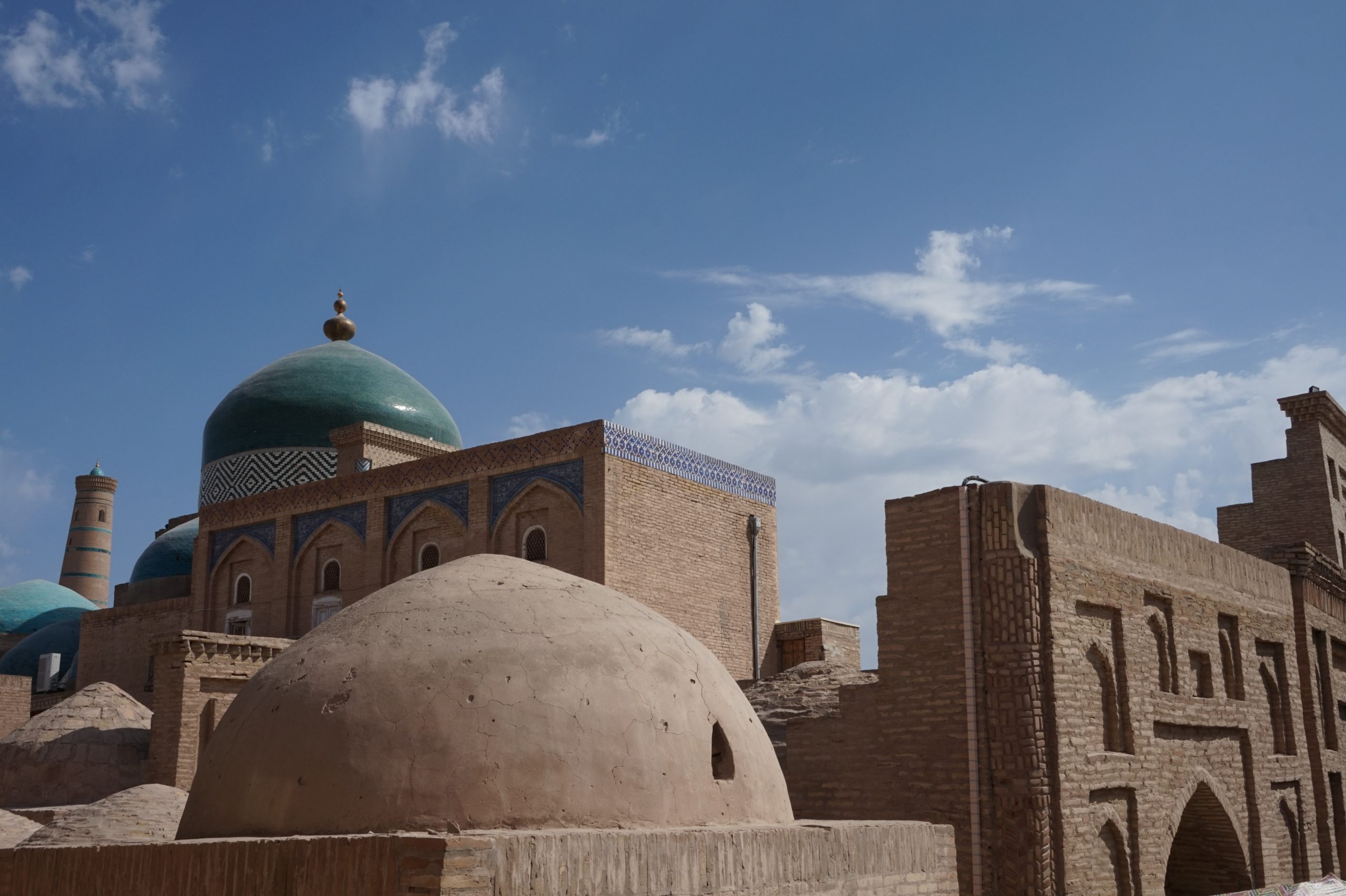
- 13 Apr 2021
[Regional Forum] Central Asia-ASEAN: Opportunities in Trade, Investment and Education
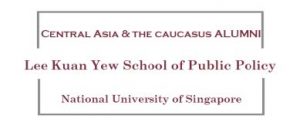 |
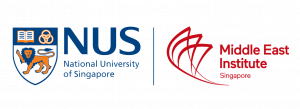 |
This event is jointly organised by Lee Kuan School of Public Policy (LKYSPP) Central Asia and Caucasus Alumni Chapter and the Middle East Institute (NUS)
About the Forum
Lee Kuan Yew School of Public Policy (LKYSPP) Central Asia and Caucasus Alumni Chapter and the Middle East Institute (NUS) are hosting an online forum to discuss opportunities and challenges for cooperation between Central Asian and ASEAN countries in economic, financial and educational ecosystems. Due to the global pandemic crisis, countries in Central and Southeast Asia are in search for diversification of economic partnerships. Understanding the opportunities in these regions could support cooperation in foreign direct investments, free trade agreements and higher and executive education initiatives.
Yerlan Kubashev, Counsellor of the Embassy of Kazakhstan in Singapore will be the Keynote Speaker. The event will be moderated by Inkar Aitkuzhina, LKYSPP Alumna, Analyst at McKinsey & Company.
This public talk will be conducted online via Zoom on Tuesday, 13 April 2021, from 2.30pm to 4.00pm (SGT). All are welcome to participate. This event is free, however, registration is compulsory. Successful registrants will receive a confirmation email with the Zoom details closer to the date of the event.
This event is free, however, registration is compulsory. To register, click here.
Photo by photo_comments on Unsplash
Listen to the full event here:
Watch the full event here:
Read the Summary of Event Proceedings:
By Tan Feng Qin
Research Associate, Middle East Institute, National University of Singapore
In this forum, a group of young professionals from Kazakhstan and Singapore explored existing and potential avenues of cooperation between the two countries and their wider neighbourhoods in the areas of education, financial technology (fintech), trade and entrepreneurship. The counsellor of the embassy of Kazakhstan in Singapore delivered an overview of Kazakhstan–Singapore economic relations to close the discussion.
The Tertiary Education Sector in Kazakstan: A Partnership with Singapore
Ms Aigerim (Aika) Bolat, programme manager at the Frankfurt School of Finance and Management in Germany, started the session by sharing the achievements of Kazakhstan’s tertiary education sector. She focused on the contributions of Singapore’s partnership with Kazakhstan in the area, which she believed could be a helpful example for other Central Asian or Middle Eastern countries in the development of their own education sectors.
Kazakhstan developed its education sector as part of a strategy to diversify its economy away from a reliance on oil and gas, and has sought to do so by learning from other advanced countries, including Singapore. Mr Lee Kuan Yew, former prime minister of Singapore developed a close relationship between the two countries which led to successful partnerships in several sectors. Kazakhstan’s first president, Mr Nursultan Nazarbayev, sought to adopt useful insights from Singapore while tailoring them to his country’s needs.
In the process, Mr Nazarbayev recognised the importance of improving standards of higher education in Kazakhstan and developed several initiatives to do so. He set up the Bolashak international scholarship programme (named after the Kazakh word for future, Болашақ) for promising, young Kazakhstanis who are expected to contribute to Kazakhstan’s development upon graduation. He also established Nazarbayev University (NU) to prepare the next generation of innovators and technical professionals to diversify the economy and contribute to Central Asia’s transformation.
NU has partnered with leading international universities to achieve this mission, including many American universities and the National University of Singapore (NUS). The Graduate School for Public Policy (GSPP) at NU was specifically set up in partnership with NUS. The Lee Kuan Yew School of Public Policy (LKYSPP) at NUS helped design and develop the latter’s master’s and PhD programmes. Senior LKYSPP faculty also train and prepare junior faculty members of GSPP. Students of the school’s Master in Public Policy programme also visit Singapore every summer to learn about the country’s socioeconomic development, including from Singapore’s policy makers.
Ms Bolat concluded by recognising the contribution of many supportive partners from Singapore and other countries in Southeast Asia, in the development of Kazakhstan’s tertiary education sector.
Doing Business in Kazakhstan: The Astana International Financial Centre
Mr Bekzhan Mutanov, deputy CEO of the fintech hub of the Astana International Financial Centre (AIFC), next proceeded to give an overview of the centre.
The AIFC aims to develop Central Asia’s finance industry and seeks to serve as a financial hub for not just Central Asia but also the Caucasus and the Eurasian Economic Union (EAEU). It deals with five key areas: capital markets, asset management, private banking, fintech, and Islamic finance.
The AIFC also looks to establish itself as a gateway between the eastern and western capital markets. Part of the AIFC, the Astana International Exchange (AIX) has invited the US Nasdaq exchange as a key technology partner and has US firm J.P. Morgan as a shareholder, even while Chinese organisations such as the Shanghai Stock Exchange and the Silk Road Foundation have become a part of Kazakhstani financial institutions.
The AIFC prides itself in being expat and business friendly. It provides a single window approach to allow easy access to government services and offers zero corporate taxes for businesses within the hub and zero personal income tax for expats. Additionally, the AIFC is transitioning from the Romano-Germanic legal environment common in post-Soviet countries to an English common law system more commonly used by Asian countries such as Singapore and Hong Kong. It has also sought to establish an understandable, clear and transparent legal system approachable to foreign businesspeople and investors, and more than 400 cases have already been solved within the AIFC’s International Arbitration Centre.
The AIFC also offers a flexible regulatory framework developed by the Astana Financial Services Authority (Afsa), which works closely with the Monetary Authority of Singapore. Afsa is also working with the Ministry of Law in Singapore to develop Kazakhstan’s intellectual property industry to integrate more fully with the global intellectual property ecosystem and improve investor confidence.
Venture capital funds are also showing interest in Kazakhstan. One such entity is Quest Ventures in Singapore, which together with Kazakhstan’s state-owned QazTech Ventures established the Kazakhstan Digital Accelerator project to provide start-up funding for companies structured within the AIFC.
Central Asia as a Trade and Investment Opportunity: The View from Singapore
Ms Athena Foo, senior assistant director at Singapore’s Ministry of Trade and Industry, next shared her personal assessment of the country’s view of Central Asia with respect to trade and investment and examined the challenges Singaporean businesses face in the region.
Singapore’s Ministry of Trade and Industry has always looked to expand the country’s economic space beyond its immediate neighbourhood in pursuit of economic diversification. Countries like Kazakhstan offer Singaporean companies a springboard into the wider Central Asian region, while Uzbekistan offers a larger market in a frontier space where companies can enjoy an early mover advantage. Central Asia’s strategic location in China’s Belt and Road Initiative and the region’s links to the EAEU also makes Central Asia an area of growing economic importance.
Singapore seeks to develop mutually beneficial and sustainable bilateral trade relations with Central Asia. It conducts official visits to maintain ties at a political level and establishes memoranda of understanding to collaborate on projects of mutual interest. Singapore has specifically been working to connect Singaporean fruit importers with Uzbekistani exporters, with a successful deal on dried apricots.
At a regional level, Singapore’s engagement has mainly been with the EAEU. A free trade agreement is being negotiated with the bloc, which when completed, could lower business costs for importers in the EAEU while creating greater confidence for Singaporean companies. Other benefits will include deepening trade linkages between Central Asia, the Association of Southeast Asian Nations (Asean) and the Asia-Pacific Economic Cooperation forum.
Ms Foo concluded by identifying two broad challenges to greater economic cooperation between Central Asia and Singapore. While potential for cooperation exists across a wide range of sectors, there needs to be greater awareness at the people-to-people level for more opportunities to manifest as not many Singaporeans are knowledgeable about the region. The more Singaporeans learn about the region, including through tourism and travel, and spread the word about potential opportunities, the greater the potential growth for trade.
A second challenge is a lack of connectivity between the regions. Greater connectivity could come at the physical level through increased air connectivity and flights to facilitate the movement of people and goods. It could also come on the digital front to facilitate greater economic cooperation in the long run.
Singapore as a Destination for Central Asian Entrepreneurs
Mr Olzhas Zhiyenkulov, CEO of Paladigm Capital in Singapore, gave his perspective on the advantages of Singapore as a base for Central Asian businesspeople looking to engage the wider regional market.
Having been in Singapore for many years, Mr Zhiyenkulov loved being in Singapore and felt like a local. Singapore possesses a transparent economic environment. Its stable, technocratic government is predictable in its policies and has developed an infrastructure that makes it easy to do business. Services are accessible, procedures are clear and everything is online. Singapore’s handling of the Covid-19 coronavirus pandemic also showcases the government’s exemplary performance in governance.
Singapore’s success as a financial hub can be seen in its competitive position compared to Hong Kong and Switzerland. It is Mr Zhiyenkulov’s opinion that Singapore could potentially overtake Switzerland in this role.
Taxes are low in Singapore compared to Europe, and double taxation treaties with emerging markets provide investment opportunities. The Singapore–Kazakhstan double taxation treaty includes provisions that make structuring investment vehicles out of Singapore an efficient process.
It is also easy for foreigners to relocate to Singapore. Immigration procedures are transparent, easy to understand and very quick to transact compared to Europe. Furthermore, Singapore is more receptive of foreigners and skilled professionals of Asian origin compared to its competitors. As a Kazakhstani national, Mr Zhiyenkulov has not been made to feel like a third-rate citizen in the country.
Mr Zhiyenkulov’s company, Paladigm Capital, has leveraged on Singapore’s advantages as a financial hub, its transparent regulator regime and its vast expertise as Southeast Asia’s venture capital hub. As a financial hub attracting capital, Singapore needs an investment destination and Central Asia as an investment frontier is one such destination that could lead to extensive growth in investment indicators. Overall, in Mr Zhiyenkulov’s view, Singapore has great makings to be a gateway to Central Asia.
Kazakhstan, Singapore and Southeast Asia: Potential for Growth
Mr Yerlan Kubashev, counsellor of the embassy of Kazakhstan in Singapore, ended the session with an overview of Kazakhstan’s development priorities and gave comments about the state and future of Kazakhstan’s economic relations with Singapore.
Kazakhstan’s president has tasked his government to implement reforms, chief of which are economic reforms to attract investments through the Investment Committee of Kazakhstan’s Ministry of Foreign Affairs as well as Kazakh Invest. Representatives of Kazakh Invest are based not just in Singapore, but also in Southeast and East Asia.
The coronavirus pandemic has caused some disruption to Kazakhstan’s trade. For instance, the country’s trade with China had been temporary restricted as a result of Chinese concerns over coronavirus hotspots. The pandemic has also adversely affected Kazakhstan’s efforts to establish trade connections with Singapore and Southeast Asia.
There are, however, some positive signs. Even with the pandemic, Singapore’s investment in Kazakhstan amounted to more than 150 million dollars in 2020. The counsellor has also encountered significant interest by companies in Kazakhstan and Singapore. However, Mr Kubashev agreed with Ms Foo that connectivity between the two countries remained a problem. Kazakhstan remains in close contact with the Singapore Business Federation and Enterprise Singapore, which together with Singapore’s trade chambers remain interested in business with Kazakhstan. Mr Kubashev remained optimistic that projects to improve connectivity between the two countries could be implemented after the pandemic situation improves.
Other cooperative projects have already been established in Kazakhstan. Singapore and Invest in Kazakhstan have worked together on a cement plant project in the Almaty region, oil service production in the Mangystau region and poultry feed milling plants in the North Kazakhstan region. More than eight joint projects remain under consideration. Additional avenues include possible cooperation between educational centres and think tanks in the two countries, with Singaporean educational centres and universities potentially opening branches in Kazakhstan in the next five years.
Mr Kubashev invited the forum’s participants to get in touch with the Kazakhstani embassy to share any ideas or proposals for economic cooperation. The embassy, together with a representative of Kazakh Invest would be ready to discuss and listen to these ideas. QazTrade, under Kazakhstan’s Ministry of Trade and Integration, and QazIndustry under its Ministry of Industry and Infrastructure Development, are also authorised to assist with trade issues in Kazakhstan. He looked forward to further cooperation between Kazakhstan and Singapore establishing a bridge between Central Asia and Southeast Asia.
Highlights from the Question and Answer Session
Asked why Singapore would be interested in trade with Central Asia considering the region’s limited population, limited interregional trade flows and challenges arising from its landlocked nature, Ms Foo explained that she works mainly with a small and niche group of less than five companies who are intrepid enough to venture outside of Singapore’s immediate region, who do so recognising very specific opportunities in areas such as master planning, education and the tourism and hospitality sector. However, she believed that once these companies enjoy visible success, it would be possible to attract more companies. In addition, Central Asia’s young and growing middle class population promises many commercial opportunities in five to 20 years’ time. The logistical challenges posed by the region’s geography could also be bypassed by focusing on the digital sphere, including in trade services, e-commerce and fintech.
Asked how Central Asia could leverage on the growth potential of Islamic finance, Mr Mutanov gave an overview of the opportunities available for professional development in that field at the Bureau for Continuing Professional Development at the AIFC. These include courses on Islamic Finance Qualification and a preparatory programme for the Certified Shariʿa Adviser and Auditor qualification. The bureau collaborates with external partners such as the Bahrain Institute of Banking and Finance and Malaysia’s International Centre for Education in Islamic Finance to provide these opportunities. The AIFC has also developed regulations for Islamic finance, including on Islamic insurance and reinsurance and has also looked to work with startups in the Islamic finance field. Mr Mutanov’s opinion was that there is room for the industry to grow in Kazakhstan.
In response to the question of whether there could be opportunities on the regional level between Asean and Central Asia for the deepening of educational ties, Ms Bolat replied that Nazarbayev University hosts an international higher education forum yearly, inviting partner universities around the world. One option would be for other Central Asian countries and Asean to participate in this forum and leverage on NU’s experience and expertise.
About the Speakers
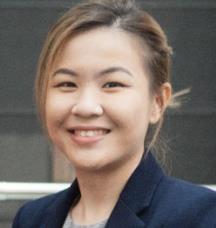
LKYSPP Alumna & Senior Assistant Director
Emerging Markets Division (Latin America, Russia & Central Asia)
Ministry of Trade and Industry, Singapore
Aigerim (Aika) Bolat
LKYSPP Alumna & Programme Manager
Frankfurt School of Finance & Management
Bekzhan Mutanov
Deputy CEO
AIFC Fintech Hub
and Chairman
Board of Directors
Venture Rocket Eurasia
Olzhas Zhiyenkulov
CEO
Paladigm Capital, Singapore
Athena Foo, LKYSPP Alumna, Senior Assistant Director at the Ministry of Trade and Industry (MTI) in Singapore, Emerging Markets Division (Latin America, Russia & Central Asia). She manages, promotes and coordinates Singapore’s economic relationships with countries in Latin America, Russia and Central Asia. Prior to joining MTI, Athena was with the Trade Division in Singapore Customs for three years, promoting and administering customs schemes that facilitate trade.

Aigerim (Aika) Bolat, LKYSPP Alumna, Programme Manager at the Frankfurt School of Finance & Management in Germany. Prior to this, she worked for development projects under the World Bank, GIZ, EBRD and UNESCAP. In academia, Aika worked for world’s leading universities including NUS and Bocconi University. At NUS she designed and delivered numerous executive education programmes for governments in South East and Central Asia. Aika led the strategic partnership project between NUS and Nazarbayev University to establish the first Graduate School of Public Policy in Kazakhstan.
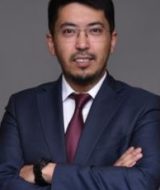
Bekzhan Mutanov, Deputy CEO of the AIFC Fintech Hub and Chairman of the Board of Directors Venture Rocket Eurasia. He oversees the development of the fintech ecosystem and implementation of the Fintech Strategy under AIFC since 2016. Bekzhan built a technology transfer business and attracted investments to Kazakhstan and Central Asia from Korea. In addition, he was in charge of investment and technological projects in Central Asia of the State Water Resources Corporation of Korea. Bekzhan has experience in strategic consulting, company and deal structuring and business development in IT and fintech.

Olzhas Zhiyenkulov, CEO at Paladigm Capital, a Singapore based boutique fund house, and a Principal at Tesla Capital, a Singapore early stage impact VC. He is a fund manager and an impact investor with over 10 years of experience in asset management, insurance, brokerage, investment strategy, financial modelling, anti-money laundering, company and industry research and due diligence. Olzhas is also a president at the Kazakhstan Asia Pacific Trade and Investment Chamber.




